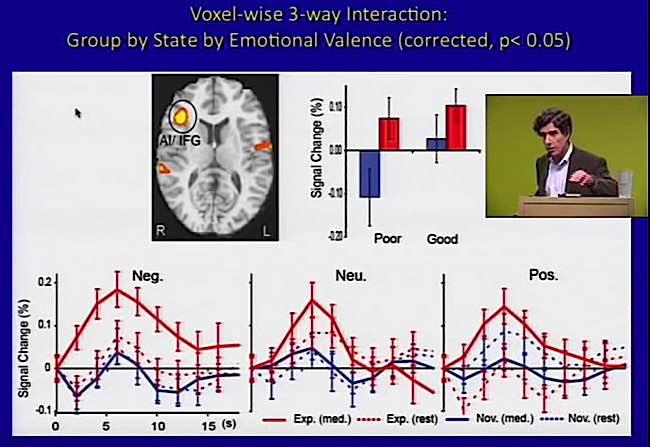In the bustling tapestry of modern life, where the relentless pace often leaves little room for pause, the ancient practice of meditation emerges as a serene counterbalance. This timeless discipline, once nestled within the quiet corners of monasteries and temples, now finds its place in the hearts of bustling cities and the routines of everyday individuals. As the world grows increasingly complex, the quest for inner peace and holistic well-being has led many to explore the profound impacts of meditation on health. From the quieting of a restless mind to the subtle healing of the body, meditation offers a sanctuary of calm and clarity. This article delves into the multifaceted role of meditation in health, unraveling the science and stories behind its transformative power. Join us on a journey through the mind’s quiet landscapes, where ancient wisdom meets modern science, and discover how meditation can be a gentle yet profound catalyst for change.
Exploring the Science Behind Meditation and Its Health Benefits
The science of meditation unveils a fascinating interplay between the mind and body, unlocking pathways to improved health. Neuroscientific studies have shown that regular meditation can lead to significant changes in brain structure and function. These changes often manifest as increased gray matter density in areas associated with memory, learning, and emotional regulation. By engaging in mindfulness practices, individuals can stimulate the parasympathetic nervous system, which helps reduce stress levels and promotes a state of relaxation. This shift not only aids in alleviating anxiety and depression but also enhances cognitive function, allowing for greater focus and clarity.
Furthermore, meditation has been linked to a myriad of physical health benefits. Research indicates that consistent practice can lead to:
- Lower blood pressure and improved cardiovascular health
- Enhanced immune system function
- Better sleep quality and reduced insomnia
- Alleviation of chronic pain symptoms
These health improvements are largely attributed to meditation’s ability to foster a deep sense of calm and awareness, encouraging a holistic approach to well-being. By incorporating meditation into daily routines, individuals can harness its transformative power to cultivate a healthier, more balanced life.

Unlocking Mental Clarity: How Meditation Enhances Cognitive Function
In the fast-paced world we inhabit, finding mental clarity can feel like an elusive goal. However, meditation offers a pathway to achieving a more focused and agile mind. By engaging in regular meditation practice, individuals can enhance their cognitive function, leading to improved memory, attention, and problem-solving abilities. Studies suggest that meditation encourages the growth of gray matter in the brain, particularly in areas associated with learning and memory. This growth can help sharpen cognitive skills, making tasks that require concentration and analytical thinking more manageable.
Benefits of Meditation on Cognitive Function:
- Improved Attention: Regular meditation helps in honing the ability to focus on tasks, reducing distractions and enhancing productivity.
- Enhanced Memory: By promoting neuroplasticity, meditation supports the brain’s ability to retain and recall information more effectively.
- Better Problem-Solving Skills: A clear and calm mind is more adept at tackling complex problems and making sound decisions.
By integrating meditation into daily routines, individuals can cultivate a mental environment conducive to clarity and enhanced cognitive performance.

Meditation as a Tool for Stress Reduction: Practical Techniques for Daily Life
Meditation, a centuries-old practice, has become an invaluable ally in our fast-paced, modern lives. Integrating meditation into daily routines can significantly alleviate stress and promote overall well-being. By focusing on the present moment and cultivating a state of mindful awareness, individuals can experience a profound sense of calm and clarity. Whether you’re a seasoned practitioner or a curious beginner, incorporating meditation into your lifestyle can be both simple and transformative.
- Mindful Breathing: Start by dedicating just five minutes each day to focus solely on your breath. Inhale deeply through your nose, hold for a moment, and exhale slowly. This technique helps center your thoughts and brings a sense of tranquility.
- Body Scan: Lie down comfortably and gradually bring your attention to different parts of your body, from head to toe. Notice any tension or discomfort and consciously relax those areas.
- Guided Visualization: Use audio guides to visualize serene landscapes or peaceful scenarios, transporting your mind away from daily stressors.
- Loving-Kindness Meditation: Cultivate compassion by silently repeating phrases that wish well-being and happiness to yourself and others.
By embracing these practices, you create a personal sanctuary of peace amidst the chaos, effectively reducing stress and enhancing your quality of life.

Integrating Meditation into Modern Healthcare: Expert Recommendations
As the intersection of mindfulness and medicine becomes more pronounced, experts are increasingly advocating for the integration of meditation into contemporary healthcare practices. Meditation offers a holistic approach that complements traditional treatments, enhancing both mental and physical well-being. Health professionals recommend incorporating meditation in several ways to maximize its benefits:
- Personalized Meditation Plans: Tailoring meditation techniques to suit individual patient needs can lead to more effective outcomes. This personalized approach ensures that patients receive guidance that aligns with their specific health conditions and lifestyle.
- Collaborative Healthcare Teams: By fostering collaboration between meditation instructors and healthcare providers, patients receive comprehensive care that addresses both mind and body. This team-based approach encourages open communication and shared decision-making.
- Incorporating Technology: Utilizing apps and online platforms can make meditation more accessible, allowing patients to practice mindfulness at their own pace and convenience. This technological integration is particularly beneficial for those with mobility issues or busy schedules.
By embedding meditation into the fabric of healthcare, we open doors to a more empathetic and patient-centered system. This fusion not only aids in stress reduction and emotional resilience but also supports physical healing, offering a multidimensional approach to health and wellness.
In Conclusion
As we draw our exploration of meditation and its profound impact on health to a close, we find ourselves at the crossroads of ancient wisdom and modern science. Meditation, in its simplicity, offers a tapestry of benefits that weave through the mind, body, and spirit. Whether it is the gentle easing of a worried mind, the fortification of our physical well-being, or the subtle enhancement of emotional resilience, the practice invites us into a space of holistic harmony. As we step back into the rhythm of our daily lives, let us carry with us the quiet power of meditation, a tool ever-ready to help us navigate the complexities of the human experience with grace and balance. In this serene art, we discover not just a practice, but a way of being—one mindful breath at a time.


































